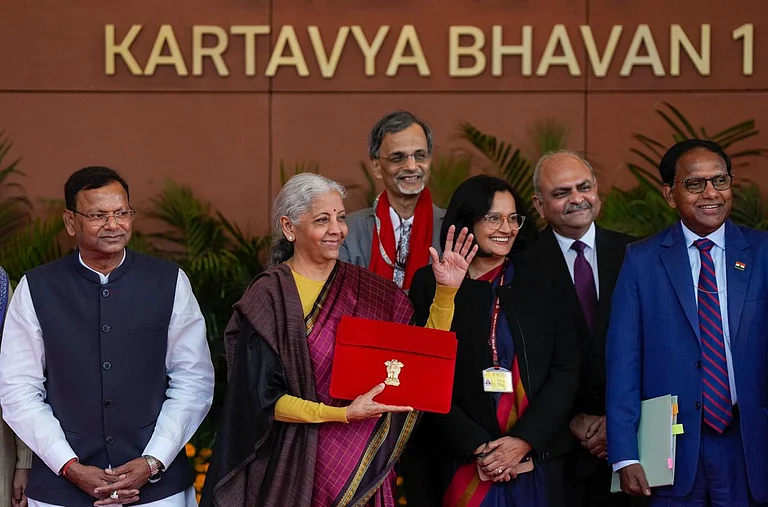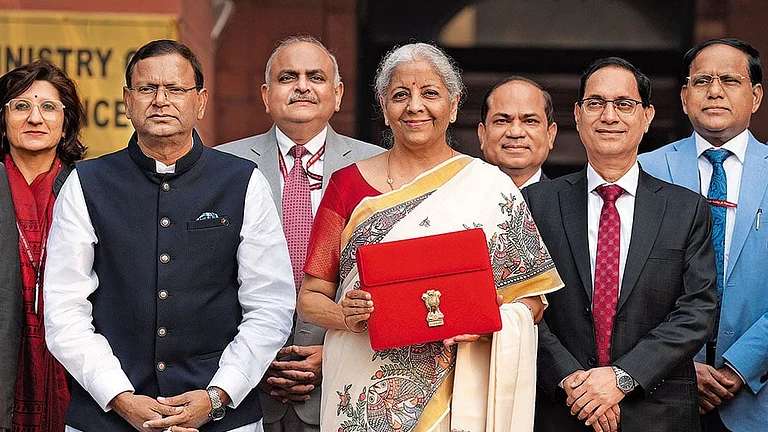With the Union Budget around the corner, start-up CFOs are expecting a series of measures that could fuel growth and economic resilience.
From simplifying tax structures to providing targeted support for startups and MSMEs, the focus is on creating an environment conducive to business expansion and technological advancement. CFOs are calling for incentives that boost research and development, particularly in emerging technologies like AI and fintech, as well as regulatory clarity to streamline operations.
Additionally, there is a strong emphasis on addressing the financing challenges faced by startups, improving infrastructure, and promoting consumer spending through tax reforms. As India looks towards a sustainable economic future, the 2025 Budget could be the catalyst for reshaping the nation’s industrial and technological landscape.
The Union Budget for the financial year 2025-26 is scheduled to be presented in Parliament by Finance Minister Nirmala Sitharaman on February 1, 2025.
Exemption from Capital Gains Tax
“For the upcoming Union Budget, the focus should be on simplifying taxation structures and strengthening MSME growth to drive economic expansion. Providing exemptions from capital gains tax on intra-group indirect transfers can streamline corporate restructuring and optimize resource allocation,” says Gaurav Singhania, Chief Financial Officer at Bizongo.
In addition to tax reforms, extending reduced corporate tax rates for new manufacturers and Global Capability Centers (GCCs) could play a crucial role in attracting investments and stimulating industrial growth. Similarly, maintaining the exemption of IGST and Compensation Cess under the MOOWR scheme is essential for reducing operational costs and refining the global competitiveness of domestic manufacturers.
Strengthening digital infrastructure is another key area. “It is essential to streamline credit delivery and integrate MSMEs into the formal economy. Together, these measures can create a more resilient industrial ecosystem and drive sustainable economic progress for the country,” Singhania added.
Addressing the financing challenges faced by MSMEs is equally critical. Augmenting the PMMY to bridge credit gaps and improving access to affordable financing can empower MSMEs to expand their operations, further fueling economic growth.
As the 2025-26 Union Budget approaches, there is growing anticipation for policies aimed at driving startup growth. Startups are increasingly investing in research and development while building advanced infrastructure, positioning themselves as key contributors to India’s innovation ecosystem.
Arpit Chug, CFO at Razorpay, highlighted the need for tailored support to foster this growth. He stated, “Manufacturing companies benefit from a lower tax rate of 15% to promote activities under the Make in India initiative. Similar tax incentives should be extended to startups, particularly those working towards strengthening the Digital India initiative.”
Chug also emphasized the importance of addressing regulatory challenges. Implementing scale-based regulations for MDR on UPI transactions, he noted, would provide significant relief to the fintech ecosystem.
Furthermore, he advocated for reforms in ESOP taxation. “Shifting the taxation of ESOPs to the time of sale, rather than at the exercise stage when there is no income, would incentivize employees, align with startups’ growth trajectories, and foster long-term value creation,” he added.
By adopting these forward-thinking measures, the government can accelerate fintech innovation, empower startups, and reshape India’s economic landscape for sustained progress.
Clearer Fintech Regulations
The Union Budget represents a critical moment for India’s fintech industry, with the potential to significantly improve the ecosystem, drive financial inclusion, and fuel economic growth.
Rishabh Goel, Co-founder & CEO of Credgenics, emphasizes that to stay globally competitive, fintech companies need support for R&D in technologies such as AI, data analytics, and blockchain. This support, he suggests, should be paired with solid public-private partnerships to advance regulatory technology.
“Increased investment in R&D, nurturing a skilled talent pool, and incentivizing AI adoption across key sectors are vital to achieving India’s goal of becoming a global AI leader. The market is projected to reach $17 billion by 2027,” he said.
To further stimulate credit growth, Goel advocates for measures that make loans more accessible and affordable for SMEs and MSMEs, strengthen the agricultural value chain, and encourage fintech-driven innovation in credit risk management. These initiatives could also stimulate consumption at the grassroots level.
However, he stresses that regulatory clarity particularly concerning data security and digital payments is essential for building trust and enabling the scalability of the fintech industry.
Goel also calls for policies that promote the adoption of innovative solutions in areas such as debt settlement, which could further strengthen the fintech ecosystem and contribute to broader economic stability.
“We believe that by using technology, implementing targeted policies, and streamlining regulations, India can not only address sector-specific challenges but also pave the way for sustainable, inclusive financial growth,” he added.
Meanwhile, India’s economy slowed to a seven-quarter low of 5.4% between July and September 2024, driven by a decline in consumer demand. There is also a slowdown in street-level investment, as well as in investments in new technologies. This presents an opportunity for the government to address the challenges faced by individuals, particularly the middle-income group, and the startup ecosystem in the upcoming Union Budget.
Ashish Goyal, Co-Founder & CFO of Fibe, highlighted that the Budget should prioritize inflation as a critical factor, with the Finance Ministry considering increasing tax slabs. Such a move would provide significant relief to salaried individuals, leaving them with increased disposable income and boosting consumer spending.
Another key area of focus should be the treatment of ESOPs. “Currently, the difference between the market price and the exercise price is treated as a perquisite, taxed as salary in the hands of employees. Shifting the taxation from perquisite to capital gains would reduce the tax burden for employees, as they hold ESOPs for long-term wealth generation,” Goyal explained.
Overall, this reform would increase the attractiveness of ESOPs as a key tool for attracting and retaining talent, empowering startups to scale sustainably.
Another critical aspect is infrastructure development, urbanization, and housing, which can be transformative for India’s growth trajectory. "We hope the Budget outlines a strategy to enrich liquidity for real estate players, boost infrastructure funding, and promote private participation in commercial real estate projects," said Samir Bhandari, Cofounder & CFO of hBits. These measures would align with the long-term vision of 'Viksit Bharat' by 2047.
Moreover, establishing clear guidelines for small and medium REITs (SM REITs) and REIT-like frameworks would fortify transparency and build trust in commercial real estate investments.

































